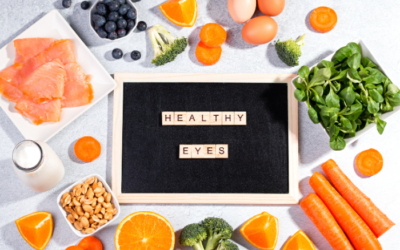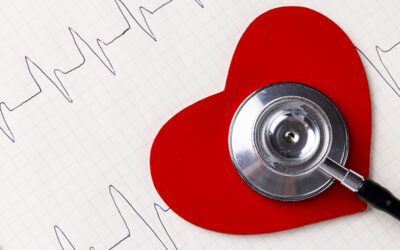A Woman’s Microbiome: Female Gut Health
What is the gut microbiome?
Scientists are just beginning to understand how significant the microbiome and its good bacteria is to our overall health. The gut microbiome are trillions of microbes in your digestive tract. The gut microbiota in the gastrointestinal tract outnumber your cells by “a factor of 10” and the microbiota genes “outnumber human genes by more than 100 times.” Your gut microbiota evolves throughout your life and plays crucial roles in health and disease. (2)
In addition, a woman’s gut microbiome shifts with her menstrual cycle, during pregnancy, and menopause.
The microbiome can become imbalanced from:
- your gut reacting to certain kinds of foods
- problems digesting nutrients
- inflammation which can cause bloating.
What is the estrobolome?
There is also another part of your gut microbiome which sends signals to all the organs in the body and research has identified it as an endrocrine organ. There is a set of gut bacteria within your gut microbiome called the estrobolome which is responsible for metabolizing estrogen and regulating it. In particular the estrobolome affects how estrogen levels are excreted and circulated. An enzyme, called beta-glucuronidase is produced in the estrobolome by microbes and this deconjugates estrogens into their active forms. When the gut microbiome is balanced, the estrobolome produces the right amount of beta-glucuronidase. Sometimes this bacteria can become imbalanced which can cause hormonal imbalances and estrogen related diseases. (4)
Imbalance and disruption of the estrobolome symptoms include:
- bloating
- low libido
- acne
- estrogen related diseases
- obesity
- cardiovascular disease
- osteoporosis
- endometriosis
- PCOS – Polycystic Ovary Syndrome
- certain breast, endometrial, cervical and ovarian cancers
- prostate cancer.
How can you balance the estrobolome?
Diet and lifestyle changes
- Gluten, sugar and dairy seem to be major causes of imbalances in the gut bacteria.
- Overusing antibiotics can kill the good bacteria in your estrobolome, leaving it vulnerable.
- The birth control pill has also been found to kill good bacteria, which can allow the bad bacteria to overgrow causing hormonal symptoms.
Add probiotics and prebiotics
- Probiotics can balance estrogen and help reverse estrogen-related issues.
- Probiotic rich foods include fermented foods such as kimchi and sauerkraut, kefir, and kombucha.
- A good quality probiotic supplement can be easy to take and a great way to ensure consistency.
- Prebiotics are important too, as they feed good bacteria. Root vegetables and leafy greens are the best source of these.
- Eat more gut-healing foods – like bone broth and ghee.
- Eat a diet rich in fiber to encourage regularity.
Avoid inflammatory foods
- Refined sugars
- Processed foods
- Seed oils – like canola, grape seed, sunflower and vegetable oils
- Conventionally raised meats
- Caffeine
- Alcohol
Take a multi-enzyme supplement
Digestive enzymes help break down food we eat into nutrients that our body can absorb. However, aging, inflammation in the body and chronic stress can all decrease our digestive enzymes. Regularly taking a supplement can ensure our body is getting all the nutrients our body needs from the foods we eat. Enzyme supplements contain lipases which break down fats, proteases which break down proteins and carbohydrases which break down carbohydrates.
Get your soup on
Bone broth is a healing for your enterocytes or gut-lining cells. Bone broth is a blend of glucosamine, glycine, gelatin, collagen, and minerals naturally found in bones. It has been found to help with leaky gut syndrome, constipation, diarrhea and food intolerance. (6)
Click here for a great bone broth recipe from one of our writers – Diana Moll, L.Ac., an Acupuncturist.
Sip some tea
Teas are incredibly soothing and medicinal. There are some teas that can help reduce inflammation and soothe the intestinal lining:
- Ginger
- Slippery elm
- Calendula flower
- Fennel
- Licorice root
- Peppermint
- Plantain leaf
- Chamomile flower.
Try golden milk
Traditionally used for a variety of conditions and overall wellness, turmeric is known for its gorgeous golden color. It can also be used to make a drink called golden milk. Golden milk is a recipe based on traditional Ayurvedic medicinal practices, often black pepper, cardamom, vanilla and ashwagandha are also added. (7)
Gut healing benefits of turmeric include:
- Anti-inflammatory properties
- Pain relief
- Improves liver function
- Antioxidant properties
- Supports digestion
- Helps with gut inflammation
- Helps with gut permeability.
Turmeric can be eaten in foods, taken in powder form in teas or smoothies, or in a turmeric supplement.
Relaxation
Stress can wreak havoc on your gut health, even leaving you with leaky gut. You know when you feel upset and you get a stomachache? That is because your gut is where most of your serotonin is and is referred to as a “second brain”. Your emotions and gut are integrally connected. (5) Which means if you are always stressed your gut is affected, your estrobolome is affected, which in turn affects both your serotonin levels and your estrogen levels.
Take a day to unwind when you feel like you are stressed. Regularly practice relaxation exercises. Practice meditation, yoga, or get a message. Whatever you need to do to relax, do it, your gut will reap the benefits.
Other tips
Estrobolome imbalance can contribute to a wide range of female hormone issues, including PMS, PCOS (polycystic ovarian syndrome), infertility, bloating and increased risk of breast and ovarian cancers. In addition to dietary changes, avoiding synthetic hormones, artificial foods, and chemicals can help reduce disruptions in the metabolization and regulation of estrogen by the estrobolome. Minimize toxin exposure by not using plastic water bottles, plastic food containers (especially when heated) and try to eat organic whenever possible.
References
1 Rochellys Diaz Heijtz, Shugui Wang, Farhana Anuar, Yu Qian, Britta Björkholm, Annika Samuelsson, Martin L. Hibberd, Hans Forssberg, Sven Pettersson “Normal gut microbiota modulates brain development and behavior” Proceedings of the National Academy of Sciences Feb 2011, 108 (7) 3047-3052; DOI: 10.1073/pnas.1010529108
2 Bull, Matthew J., and Nigel T. Plummer. “Part 1: The Human Gut Microbiome in Health and Disease.” Integrative Medicine: A Clinician’s Journal 13.6 (2014): 17–22. Print.
3 O’Hara, Ann M, and Fergus Shanahan. “The Gut Flora as a Forgotten Organ.” EMBO Reports 7.7 (2006): 688–693. PMC. Web. 19 Sept. 2018.
4 Kwa, M. Plottel CS, Blaser MJ, Adams S. The Intestinal Microbiome and Estrogen Receptor-Positive Female Breast Cancer. J Natl Cancer Inst. 2016 Apr 22;108(8). doi: 10.1093/jnci/djw029. Print 2016 Aug.
5 Mayer, Emeran A. Gut feelings: the emerging biology of gut–brain communication. Nat Rev Neurosci. Author manuscript; available in PMC 2013 Dec 2. Published in final edited form as: Nat Rev Neurosci. 2011 Jul 13; 12(8): 10.1038/nrn3071. Published online 2011 Jul 13. doi: 10.1038/nrn3071
6 Rennard BO1, Ertl RF, Gossman GL, Robbins RA, Rennard SI. Chicken soup inhibits neutrophil chemotaxis in vitro. Chest. 2000 Oct;118(4):1150-7.
7 Pietro Dulbecco and Vincenzo Savarino. Therapeutic potential of curcumin in digestive diseases. World J Gastroenterol. 2013 Dec 28; 19(48): 9256–9270. Published online 2013 Dec 28. doi: 10.3748/wjg.v19.i48.9256.
8 Baker JM, Al-Nakkash L, Herbst-Kralovetz MM. Estrogen-gut microbiome axis: Physiological and clinical implications. Maturitas. 2017;103:45-53.
9 Singh RK, Chang HW, Yan D, et al. Influence of diet on the gut microbiome and implications for human health. J Transl Med. 2017;15(1):73.

Jemile earned a degree in Food Studies and Writing and has worked for almost 23 years in the medical and health industries. She has been a digital marketing consultant for Acupuncture Atlanta since 2011 as the social media manager and content manager. Writing has been a childhood dream for Jemile and writing daily for clients in the health, wellness, food, and art industries have been phenomenal. Jemile is originally from Brooklyn, NY, and lives in the Hudson Valley, NY. She lives with her husband, two daughters, her dog, and two fish. You can contact Jemile via Linkedin, her mom blog, or her website, lunaroseconsulting.com



